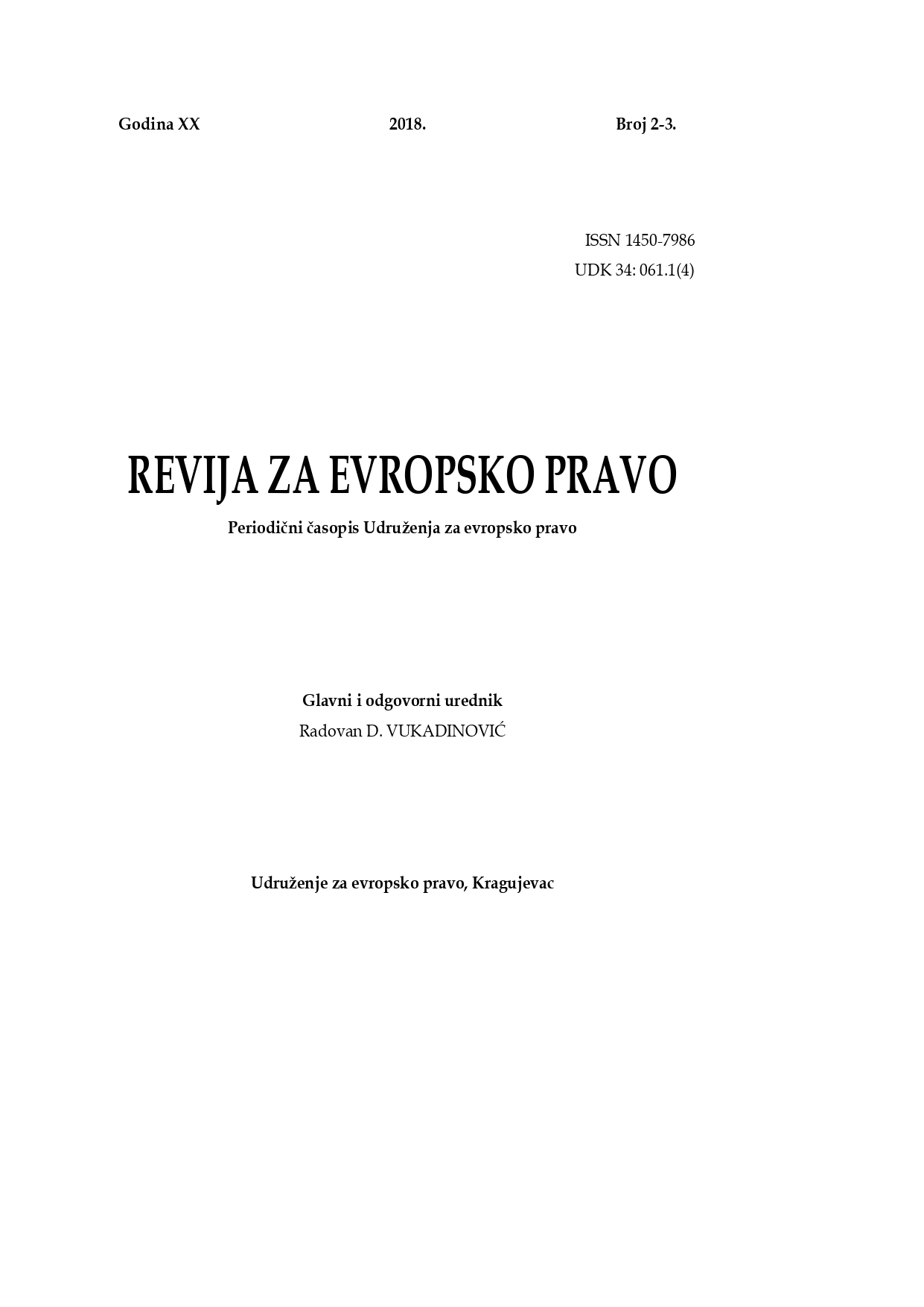BITKA ZA DECU: O HAŠKOJ KONVENCIJI O ZAŠTITI DECE
BATTLE FOR CHILDREN: ON THE HAGUE CONVENTION ON PROTECTION OF CHILDREN
Author(s): Maja StanivukovićSubject(s): Civil Law, International Law
Published by: Удружење за европско право - Центар за право Европске уније
Keywords: parental rights; domestic court jurisdiction; applicable law; Hague conventions
Summary/Abstract: This paper assesses the imporance of the 1996 Hague Child Protection Convention for the Serbian Private International Law. The Convention, which entered into force in Serbia in November 2016, introduces jurisdictional rules that are based predominantly on the child's habitual residence whereas the statutory rules of the 1982 PIL Code are based primarily on the parents' and the child's nationality. The way in which the Convention rules interact with the statutory rules is explained in detail. Special attention is dedicated to the residual jurisdiction of the divorce court to decide on matters of parental responsibility and the relationship of Brussles IIbis rules and the Convention jurisdictional rules.The Convention conflict rules supersede the statutory conflict rules which were based on the common nationality of the parents and the child, and in the absence of common nationality, on their common permanent residence. If the child had no parents, the applicable law to guardianship used to be based on the child's nationality.The Convention's primary connecting factor for the authorities of a contracting state to exercise their jurisdiction for protective measures is habitual residence of the child. Those authorities are then authorized to apply their domestic law (lex fori). In case of a change of habitual residence of the child, the courts of new habitual residence acquire jurisdiction and the right to apply their own law. The law of the child's habitual residence is applicable to the attribution and extinction of parental responsibility without the intervention of judicial or administrative authorities.A very important change is also brought in by the Convention rules on recognition and enforcement of judgments, which provide for automatic recognition without conducting a special procedure, and supersede statutory rules on exclusive jurisdiction as an impediment to recognition. An important novelty is also the possibility to recognize provisional measures adopted by a court of the contracting party.The main disadvantage of the new rules lies in their heavy reliance on the unstable and unharmonized standard of habitual residence of the child.
Journal: Revija za evropsko pravo
- Issue Year: 20/2018
- Issue No: 2-3
- Page Range: 25-48
- Page Count: 24
- Language: Serbian

